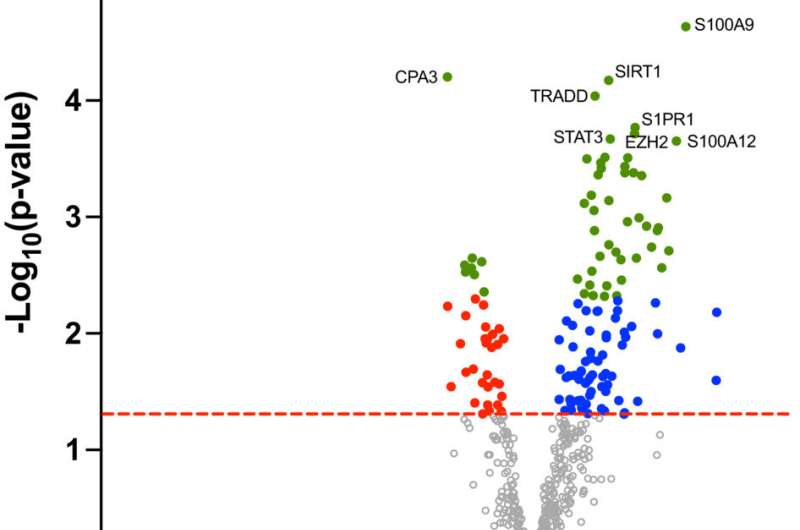This article has been reviewed according to Science X's editorial process and policies. Editors have highlighted the following attributes while ensuring the content's credibility:
fact-checked
trusted source
proofread
New study reveals breakthrough findings on genes activated in type 1 diabetes

New research, published in the journal Diabetic Medicine, has revealed that children who develop type 1 diabetes (T1D) under the age of 12 activate genes involved in immune responses that does not occur in people who develop the disease at an older age.
The study, led by a team of academics at the University of Lincoln, U.K., shows that the disease does not exist as a single entity, but as two distinct subtypes, or endotypes, possessing unique characteristics. The discovery has significant implications for the development of targeted treatments to prevent diabetes in young children.
As a chronic autoimmune disease that affects millions of people worldwide, T1D is the result of the destruction of insulin-producing cells in the pancreas by the immune system. However, the characteristics of immune cells invading the pancreas differ in people who develop diabetes at different ages.
The team, comprising scientists from the University of Lincoln, Nottingham Trent University and the University of Exeter, conducted a comprehensive analysis of genes involved in immune responses that are activated in archival samples of pancreas tissue from T1D cases of different ages originally collected more than 30 years ago.
Their findings help us to understand differences in immune responses that occur in people developing diabetes at different ages. This is crucial for the development of effective treatments and prevention strategies. By tailoring therapies to target the specific characteristics of each endotype, researchers hope to improve outcomes for individuals with type 1 diabetes.
Dr. Mike Christie, Visiting Senior Fellow at the University of Lincoln, said, "The incidence of T1D is increasing fastest in very young children. The findings from our study are important as they identify several signals used by the immune system to activate immune cells that are increased in the pancreas only in people developing T1D at a young age. In the pancreas, these signals may intensify the immune responses that destroy insulin-producing cells, leading to T1D developing at a young age."
Professor Noel Morgan, who co-led the study at the University of Exeter, noted that "Previous work has suggested very strongly that type 1 diabetes is not a single disease and that children diagnosed at the youngest ages may have a particularly aggressive form. Our new study sheds light on the immune mechanisms involved and this information will be important for the design of targeted therapeutic approaches to slow disease progression in children and teenagers."
The study marks a significant milestone, not only to unravel the complexities of type 1 diabetes, but also paving the way for similar discoveries in other autoimmune diseases.
More information: Forough Torabi et al, Differential expression of genes controlling lymphocyte differentiation and migration in two distinct endotypes of type 1 diabetes, Diabetic Medicine (2023). DOI: 10.1111/dme.15155


















